I am using MS SQL Server. Will someone please tell me why my identity column in my database just did a crazy jump in numbers when it is supposed to auto increment by 1 automatically? First off I have been entering data in row by row. Eventually after maybe 100 entries it would place them not in order sticking 101 right after 31 not in order. Now all of sudden it has jumped from 290's to 1400's when it should still be in order.... Management tools still show the right number of entries but it just makes no sense how this is supposed to be counting by one. Will someone please explain this to me?
<cfif structKeyExists(form, "user_pass")>
<!--- form has been submitted --->
<cffile
action = "upload"
fileField = "filefieldname"
destination = "#expandPath("/webapps/dash/images/")#"
nameConflict = "MakeUnique"
result = "myfile"
/>
<cfset imagePath = myfile.serverDirectory & "/" & myfile.serverFile>
<cfif isImageFile(imagePath)>
<cfquery datasource="test" name="UserRegistration">
INSERT INTO dbo.Users (employee_number, user_name, user_pass, firstname, lastname, position, email, phone_extension, branch, department, status, picture, admin)
VALUES (
<cfqueryparam value='#form.employee_number#' cfsqltype='cf_sql_varchar' />
, <cfqueryparam value='#form.user_name#' cfsqltype='cf_sql_varchar' />
, <cfqueryparam value='#form.user_pass#' cfsqltype='cf_sql_varchar' />
, <cfqueryparam value='#form.firstname#' cfsqltype='cf_sql_varchar' />
, <cfqueryparam value='#form.lastname#' cfsqltype='cf_sql_varchar' />
, <cfqueryparam value='#form.position#' cfsqltype='cf_sql_varchar' />
, <cfqueryparam value='#form.email#' cfsqltype='cf_sql_varchar' />
, <cfqueryparam value='#form.phone_extension#' cfsqltype='cf_sql_varchar' />
, <cfqueryparam value='Desoto' cfsqltype='cf_sql_varchar' />
, <cfqueryparam value='#form.department#' cfsqltype='cf_sql_varchar' />
, <cfqueryparam value='Active' cfsqltype='cf_sql_varchar' />
, <cfqueryparam value='#myfile.serverFile#' cfsqltype='cf_sql_varchar' />
, <cfqueryparam value='No' cfsqltype='cf_sql_varchar' />
)
</cfquery>
<script>
self.location="../login.cfm";
</script>
<cfelse>
<script>
<!--- not an image file so return some kind of validation message... --->
alert("Not an image file");
self.location="../register.cfm";
</script>
</cfif>
</cfif>
